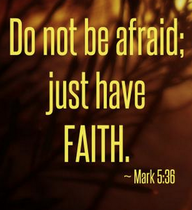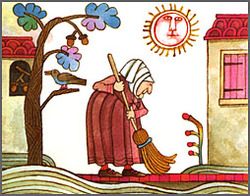P.S. Looking for a way to read Scripture on the go? Download the Bible App (iPhone/iPad or Android). It’s free, easy to use, offers multiple translations, and allows you to add your own bookmarks and highlights.
|
This weekend we kicked off a new message series called Up Close & Personal. It’s all about celebrating the season of Easter by getting to know Jesus better. As we begin this series, it’s helpful to take a moment to reflect on where you are today. How well do you feel like you know Jesus right now? What has formed your impressions about who Jesus is? Teachers? Parents? Friends? Movies? Books? One of the very best ways to get to know Jesus better is through Scripture, particularly through the Gospels. The challenge for this series is to pick one of the four Gospels (Matthew, Mark, Luke, or John) and read it during this series. Today, decide which Gospel you’ll commit to reading over the next few weeks and a time of day when you can devote 10 minutes to reading it. Then, share your plan with others--it’s a powerful way to commit yourself to a goal! Comment below to share your plan and see how others are committing to get to know Jesus better during this series.
P.S. Looking for a way to read Scripture on the go? Download the Bible App (iPhone/iPad or Android). It’s free, easy to use, offers multiple translations, and allows you to add your own bookmarks and highlights.
6 Comments
Last night I went with my family to Faneuil Hall to see the Christmas light show and soak in some of the joyous holiday spirit. It's the kind of place where you keep a close eye on your children, because they could get separated from you so quickly and easily in such a big crowd. After dinner, my kids and I found a relatively uncrowded spot to stand for a few minutes to enjoy our ice cream. I finished first, and spotted a trash can nearby where I could throw away my empty cup, but I realized that if I walked over there without saying anything, my younger child would surely look up from his Blue Vanilla at just that moment, not see me, and panic. So over the din in Quincy Market, I worked to make myself heard: “I’m walking over to that garbage can right there.” My son chose to accompany me the ten feet to the trash can, not wanting to take any chances.
It made me think about how utterly terrifying it can be for a child to be separated from his or her parents, especially in a loud, crowded, unfamiliar place like that. Even if the separation isn’t real--even if the parent can still see the child, and has just stepped out of the child’s line of sight for a second--the child will be terrified. It’s not enough for the parent to be there, keeping a watchful eye--the child also has to be able to see that the parent is there. It struck me that this is what the Feast of the Epiphany that we celebrate this week is really all about. At Christmas we celebrate the great good news that God sent his Son into the world not to condemn the world but to save it. The scenes that take place in the stable in Bethlehem and in the surrounding hills are just the beginning of the story. Epiphany is a key part of the Christmas story--the part of the story in which the focus shifts from God’s initiative, from God’s great love, to our human response. It’s not enough for Christ to be born among us--we also have to know that Christ is here. The Epiphany is about people beginning to realize that a Savior has been born for them. If we’re going to have a relationship with Christ, the kind of relationship that can transform our lives, it’s not enough for Christ to be watching over us. We have to be able to see him, too. And this means we have to search for him. Like the magi, we can’t be satisfied with just knowing that Christ was born, that he’s out there somewhere. To see for ourselves, we have to go out looking for him. Like for the magi, there are signs that point to Christ’s presence; but for us, the signs are in our lives, not in the sky. We have to look for the ways Christ is present and active and working in our lives. When we experience a moment of peace in the midst of a time of anxiety, a peace that we did not and could not create for ourselves; when we are surprised by a glimmer of hope rising up in us, despite all the reasons we’re sure that nothing will turn out right; when we find ourselves drawn to doing the harder thing, the more courageous thing; when we feel ourselves in some mysterious way accompanied and loved, and moved to accompany and love others; when a beloved friend or a total stranger says something to us that turns out to be the exact word we need to hear--all these are signs pointing to Christ’s presence in our lives. And of course, Epiphany also reminds us that we are called to lead others to Christ. The star is such a central symbol of Christmas, and such a fitting symbol of what Christ asks us to do: to light the way for others, to lead others, especially those who are far off, into relationship with him. At least four parishioners this Christmas told me about families who had accepted their invitations to come to church--to worship with us during Advent, to join us for Christmas Kickoff, to come to Christmas Mass. And dozens more members volunteered to serve as greeters this Advent and Christmas, to ensure that when these families arrived at church for their first time, in response to an invitation from a friend or neighbor, they would be warmly welcomed. These are such encouraging signs of growth in our parishes--thank you so much to all who extended invitations to join us, and all who helped provide a welcoming spirit at New Roads this Christmas. ~Rachel Take your next step: This week, look for signs of Christ’s presence in your life, signs of peace, hope, joy, love, and guidance. See if you can find one sign of Christ’s presence every day. Here’s something to think about: What God sees when he looks at our lives is not always the same as what we see. And at times, the difference between what God sees and what I see can be enormous. I think I know so well what I need and what is best for me--that even if I don’t know much about anything else, surely I must be the expert on my own life--but actually, God is the expert on my life. God’s perspective on my strengths and weaknesses, my joys and challenges, my past and my present and my future, is so much wider and longer and deeper than mine. I’ve got the obstructed view--behind a pole in the nosebleed seats--but God’s in a field box right behind home plate. He can see every play--he knows the story of my life so much better than I do. So if you ask me what I need right now, and you ask God what I need right now, you would probably get two very different responses.
In some way, God is always meeting needs that I don’t know I have and answering questions I haven’t thought to ask. And because I don’t really know what I need, I often have trouble recognizing and accepting what God offers me to fill that need. So many times, I’ve been so focused on the mountain of things I think I need--God’s help with making an important decision, improving a difficult relationship, solving an impossible problem--that I haven’t been able to see past it to get a glimpse of what God is giving me. Only when I am really willing to spend a lot of time in prayer can I sometimes see beyond my mountain of needs. Right now, if I’m really honest, I have to say that what I want God to give me is solutions, but I have a feeling that what God wants to give me is the ability to trust that he’s got it all under control. This pattern of being unaware of what we really need and unable to recognize and accept God’s answer to that need is as old as history, and is woven through all the readings this week. God was leading the Israelites to an amazing future, but they longed to go back to slavery in Egypt. The people were hungry, and God sent bread from heaven, but the people asked, “What is this?” The crowd saw Jesus as a miracle worker who could multiply bread, and did not recognize that he was offering something far greater than bread--the gift of his own self, the gift of a relationship with him. When we are focused on our needs, it is just so hard for us to see what God is doing. One element of growing in our faith is learning to align our vision more and more with God’s vision. With God’s grace, we can begin to see more of what he sees, and begin to sense what he is working on in our lives. We can gradually become less concerned about what we think we need, and more open to receiving what he knows we need. And so much of the time, what we really need is to go deeper in relationship with him. In the end, the things we think we need are like food that perishes, but a real, active, living relationship with the Lord endures for eternal life. ~Rachel Take your next step: Spend a couple of minutes opening your heart to God and telling him what you really want him to give you. Then ask God to give you a glimpse of what he really wants to give you. Share your response by adding a comment here on our blog: What I want God to give me is… But I have a feeling that what God wants to give me is… Has God spoken to you lately? No, really--stop for a minute, and think about it. Has God spoken to you lately? What did God say? For a lot of us, the idea that God would speak to us might seem far-fetched. Maybe it seems like God stopped speaking a long time ago, around the time the Bible was finished. Or maybe it seems like God does still speak to people, but only to saints and visionaries and popes. Or maybe it seems theoretically possible that God is speaking to you personally, but you have no idea how you would know what God is saying. But what if we entertain the far-fetched notion for a moment: what if God really does speak to us all the time, in ways that we can actually understand, if we really want to?
After all, we believe that God created us and loves us and wants to be in relationship with us. What kind of God would create us and love us and want to be in relationship with us, but never speak to us? We believe that God is deeply interested in each of us, in our hopes and fears and dreams. How could God possibly not want to speak to us about those things? So if we haven’t heard God speaking to us lately, maybe it’s not because God hasn’t been speaking, but because we haven’t been listening. One of the things that can get in the way of hearing God is that we get stuck on thinking that if God were to speak to us, it would have to be in some highly dramatic biblical fashion, like a thundering voice from a cloud. This can be a big roadblock--if we’re looking for a voice from a cloud, we’re probably going to miss the ways that God is really speaking to us. God can speak to us through our emotional responses to events and experiences in our lives, through his Word, through the words that people in our lives say to us, through creation, through the sacraments, through the Church, through art and music and literature. God speaks to us all the time in a thousand ways that we can understand, if we really want to. A huge part of listening to God is just paying attention. But it’s also true that sometimes, we don’t listen to God because we don’t really want to hear what God is saying. We’re afraid that we’ll have to change in some way that we’re not really open to, or that God might ask us to do something we’re not prepared to do. So we avoid hearing the word that God is speaking to us by not bothering to pay attention. Maybe deep down we have a gut feeling that we know what God is saying to us through our experiences or through another person, and it’s something we really don’t want to hear. Or maybe we have already decided what we want God to say to us, and we’re only willing to listen if God says the words that we’re trying to put in his mouth. So we resist and rebel, doing the spiritual equivalent of sticking our fingers in our ears and saying, “I can’t hear you!” For me, there was a time in my life when I was very intentionally trying to discern God’s will for me. I wanted God to tell me specifically what kind of work he wanted me to do, so I was spending a lot of time asking, “What do you want me to do, Lord?”, and a lot of time hearing nothing in response. The possibilities that I thought might be God’s will for me didn’t work out, and over the course of several months, I became increasingly frustrated and resentful: here I was wanting to know God’s will so I could live it out, and he wouldn’t even tell me what it was. I kept hammering away and hammering away, until eventually in prayer it occurred to me that maybe “What do you want me to do, Lord?” was not the question God wanted to answer for me right then. It was what I was interested in talking to God about, but maybe it was not what God wanted to talk to me about. So I began to try to listen to God not for an answer to my questions, but for whatever God was trying to say to me. And slowly I began to hear God say, “You don’t need to worry about that right now. Just serve where you are. You don’t need to figure out some grand plan. Just serve the people I put in front of you every day.” I started to hear God saying “Just serve,” in a very strong and comforting way, all the time. In hearing that message and trying to follow it, I felt a sense of peace that I hadn’t known I needed. As it turns out, God has a much better sense of what I need to hear than I do. But I have to keep relearning this lesson over and over again. ~Rachel Take your next step: The Examen is a way of praying developed by St. Ignatius that helps us to grow in our ability to recognize and hear God’s voice. It takes about 10-15 minutes a day. Try praying the Examen every day for a week as a way to become more open to hearing God speak to you.  This is a great question this week in light of Pope Francis’s encyclical (a document or letter intended for a wide circulation to teach or guide), which you may have heard about. It’s called Laudato Si, which is Italian for “Praise to You.” That’s a quote from Saint Francis’s thirteenth-century Canticle of the Sun, which offers praise to God for creation, and it’s an appropriate title for a teaching about the environment. Without getting into the encyclical, it’s enough to say that the pope is calling for “swift and united global action” to care for our planet. As one might expect from a spiritual leader, Pope Francis expects us to examine the choices we make that affect our environment, as well as our attitude about our relationships with our fellow humans, including future generations. I believe most people have very good intentions about all of this, and yet, as the pope says, “the Earth, our home, is beginning to look more and more like an immense pile of filth.” Yikes! It seems the pope is trying to provoke us to ask ourselves what God expects of us, which might also prompt us to ask what we expect of God and what we think we deserve from God. The readings for this coming weekend also invite us to reflect on these questions. The passage from the Gospel of Mark presents two stories, one sandwiched within the other. The author wants us to be aware that the stories are related and that the whole lesson includes both stories. An important man in the community, a synagogue official, has a 12-year-old daughter who is “at the point of death.” As an equal on the social scale, he is free to approach Jesus. He falls at his feet, as a gesture of homage and petition. According to the social code, Jesus would be obligated to help him. That society taught that men of equal status are obligated to do what they can for each other. Even though Jesus’s last reported visit to the synagogue, when he healed on a Sabbath, had resulted in a plot to kill him, this official had faith that Jesus could heal his daughter, and he believed that he deserved this favor from Jesus. In the middle of this action, an unimportant, nameless woman, who has lost everything, including her social status, due to a 12-year illness, makes the decision to sneak up in the crowd to touch Jesus. She too has faith that Jesus can heal her, but believes she does not deserve to approach Jesus directly to ask for help. Although she probably knows the religious and social ethics that make her an outcast, she also knows the rich wisdom tradition of her faith. She is convinced that the suffering she has endured is not God’s will. What she has heard about Jesus makes her suspect he would agree. She is healed when she touches Jesus, but curing her illness is not enough for Jesus. She deserves more. He seeks her out for a personal encounter so that she can be fully restored to community life. By this time, after the interruption, the report comes that the official’s daughter has died; it’s too late for Jesus to do anything. The official, who sought the encounter with Jesus, is challenged to take his next step in his faith journey. He didn’t get what he thought he deserved, but Jesus believes he deserves more. His choice to seek help from Jesus will lead him to a deeper experience of God’s love, goodness, and healing power than he thought was possible. ~Fr. Thom Take your next step: Take some time to reflect on the following questions through journaling or quiet prayer: What choices have you made to seek God’s help in your life? What do you believe you deserve from God? What does God want from you?  “What are you looking for?” This is a pivotal question in the reading taken from the Gospel of John for the second Sunday in Ordinary Time. Knowing what we are looking for determines where we look and what it is worth to us to even bother looking. After all, you would not look in a lake for an owl or in a violent demonstration for an experience of peace. So, what are you looking for? Peace, balance, wholeness, holiness, resilience, meaning, a sense of purpose or direction, security, a relationship that makes a difference? All of the above are byproducts of a relationship that makes a difference, of the relationship that makes the greatest and most fundamental difference in our lives. For the past year and a half, you have been hearing us speak of the importance of developing a personal relationship with Jesus Christ. This cannot be emphasized too much. Faith grows and deepens in the fertile environment of a deep and abiding friendship with God. Belief, hope, trust, and love spread their roots into every facet of our lives when we come to know God through frequent and persistent prayer. It is important to recall that relationship requires two people to be open to the gift of connection, the union and the development of bonds between them. In this we are extremely blessed, because God loved us first and will continue to love us no matter what. Spurred on by the awareness that we are truly loved by God, it becomes easier to trust our desire to come to know, love, and imitate Christ and to recognize God’s activity in our lives. How might you do this? Take time at the end of each day to reflect on that day. When did you experience a moment of delight, of unexpected peace, of long-awaited insight into how to deal with a problem? Consider the source of the delight, peace, or insight. Did you create those feelings or awarenesses? More often than not, you will find yourself acknowledging that they are pure gifts and so conclude they came from God. In such a moment of awareness, a prayer of thanksgiving is an appropriate response. Reading and reflecting on the Gospels is critical to coming to know Christ better and to know what Christ asks of you. The scriptures for the Second Sunday in Ordinary time are rich for our consideration. In them, we hear: “Speak, Lord, your servant is listening.” “Behold.” “What are you looking for?” “Where are you staying?” “Come and see.” Each of these words or phrases invites us to consider their meaning for us at this moment in time. For instance: What is God wanting to say to you? What does God want you to behold; not just see, but behold? When we hear Jesus invite us to come and see, what exactly is he holding up for us to notice? So, after all is said and done, “What are you looking for?” Are you looking for the relationship that makes the greatest and most fundamental difference in your life? Christ has been looking for that relationship with you from the start. He awaits your next step. Are you ready to take it? You will not regret it. Come and see. ~Sr. Kathleen Take Your Next Step: Spend a few minutes at the end of each day this week asking God to open your eyes and heart to the ways in which God was present and active in your life that day. Tell God about your desire to know God more fully and to love God more deeply.  A traditional Italian folktale tells the story of La Befana, a somewhat grumpy old woman who travels through Italy on the eve of the Epiphany, searching for the Christ Child and leaving gifts in every home she visits. The story goes that while Befana was home attending to her daily duties of sweeping and cooking, the Three Magi stopped by on their way to find the Baby Jesus. They invited her to go with them, and she was intrigued by the idea of this Baby King, but she just couldn’t tear herself away from what she was doing. So the Three Magi went on their way, leaving Befana to her sweeping. Not long after they had gone, she had a change of heart and was filled with regret. She packed her bags and went off searching. The story goes that she is looking for the Baby Jesus still. So much in this quaint Italian folktale about the Epiphany is relevant for all of us who are looking for Christ, but don’t always know where or even how to find him. First, we have to seize the opportunity when it presents itself. The Three Magi found Christ because they set off on their journey when they saw the star, but Befana declined the invitation because she just couldn’t bring herself to stop her sweeping, which seemed so important at the moment. Into all of our lives, God sends stars and wise people who could lead us to Jesus if we would only allow our vision to be turned from the things that usually occupy us. What is something bright and beautiful and maybe a little mysterious in your own life that might be God’s way of catching your attention and drawing you closer to him? Who are the wise people that God has sent into your life, the people who could lead you to Christ if you let them? Second, we have to join with others if we want to find Christ. The Three Magi had one another, but they also needed help from King Herod. Following the star got them as far as Jerusalem, but then they lost sight of it and had to rely on others to guide them the rest of the way. Perhaps Befana never found the Christ Child because she went looking on her own. Somewhere along the way, I heard it said that “you can do a lot of things alone, but being Christian isn’t one of them.” We need others to search with us, to journey with us, to keep us on the right path. But sharing our journey with others takes real courage. Compared to setting out following a star into some unknown country, learning how to share our struggles and joys with others can be way more frightening. Joining in a small faith-sharing group, coming to Scripture reflection for the first time, volunteering to serve with others in a new ministry—for many people, these steps will require great courage. But we have to share our journey with others if we hope to find Christ. Finally, finding Christ really is a journey of a lifetime. One of the great virtues of the Christian life is persistence. It seems to me that the beauty of the story of La Befana is that she never gives up—she is searching still, and brightening people’s lives along the way. To some of us, it might appear that people who practice their faith have it all figured out, that they know exactly what they’re doing and that they have somehow miraculously discovered some secret key to having faith. But I just don’t think it works that way. Faith is not about having something figured out, but about sticking with the search, and loving those we encounter along the way. ~Rachel Take Your Next Step: Look for the stars and wise people in your life who can show you the way to Christ. Ask God to help you in your search. Try praying this short line from a prayer by St. Anselm of Canterbury: “O my God, teach my heart where and how to seek you, where and how to find you.” Listen to the incredible promise God is making to you this week: I myself will look after you. I will rescue you from every place where you were scattered when it was cloudy and dark. I myself will give you rest. I will seek you out when you are lost. I will bring you back when you stray. I will bind up your injuries and heal you when you are sick (paraphrased from Ezekiel 34). Can you imagine God looking after you? Not just other people in other places, but you, personally—God rescuing you, giving you rest, seeking you out when you are lost? It’s a pretty amazing promise. The only problem is that I think many of us often have a hard time believing that God is really making it to us. Maybe we believe in a general sense in a good God, a God who created the universe, even a God who loves us in sort of an abstract, theoretical way. But does each of us really believe that God wants to be intimately involved in my own real life—my own particular, unique, crazy, messy, painful, beautiful life?
While each of us may struggle as individuals to believe this to be true of ourselves, this conviction lies at the heart of the Christian faith (and at the center of this Sunday’s feast, the Solemnity of Our Lord Jesus Christ, King of the Universe). Everything we do and believe together as a Church is built around the faith that the God who made the universe, who set the stars in motion, is also the God who so desperately wants to be involved in each of our lives that he chose to enter into our human condition, to pitch his tent among us in the Incarnation. The Incarnation of Christ is the ultimate expression of God’s love for us and desire to be involved in our lives. Saint Ignatius suggests that to really get this, we should try to imagine God looking down at the world in the time just before the Incarnation. Looking at the world, God sees men and women, adults and children, rich and poor, weak and powerful, some being born, some dying, some laughing and some in tears, some feeding one another and some killing one another, so many people full of despair, so many people searching for love and for any sense of meaning in this world. Moved with love and compassion for each one of us, for our struggles and our pain and our search for meaning through all the darkness and confusion, God decides that there is only one thing to be done—God the Son must become human to save the whole world and everyone in it. God decides to break the power of evil and make all things new in Jesus Christ, King of the Universe. And so begins the greatest adventure story ever told. This last Sunday of the liturgical year provides us with an opportunity to take stock of how we are doing, to reflect on God’s vision for the world, and to evaluate our own involvement in it. Next week the Church year begins again with Advent, when we prepare to celebrate the birth of the King. This week we proclaim who Christ is as King: a king who rules as a shepherd; who looks after and cares for the lost, the strayed, the injured; who is present in all the world’s hungry, naked, imprisoned, neglected, lonely, brokenhearted people. But here’s where it comes back to us. If Christ the King is going to have any kind of kingdom, then we have to build it. Like the King, we have to give ourselves away in concrete acts of love toward concrete people. But if we do, then we will hear the King say to us, “Come, you who are blessed by my Father. Inherit the kingdom prepared for you from the foundation of the world.” That’s a pretty amazing promise, isn’t it? ~Rachel Take Your Next Step: Spend some time this week trying to see the world through God’s eyes. Try to imagine the love and compassion that God feels in looking on the world’s joys and sufferings, in seeing all the different ways people treat one another. How do you feel as you try to imagine the world through God’s eyes? Imagine how God feels in looking at the pain and struggles in your own life. Ask God to show you the concrete ways he is looking after you, rescuing you, seeking you out. |
Archives
August 2017
Categories
All
|




 RSS Feed
RSS Feed
 Like us on Facebook
Like us on Facebook Follow us on Twitter
Follow us on Twitter